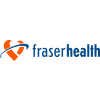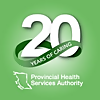Detailed Overview
In accordance with the British Columbia College of Nurses and Midwives (BCCNM) standards of practice and the Mission and Values of Fraser Health, and working collaboratively and in partnership with the interprofessional care team in the provision of person-centered care, the Registered Nurse provides direct patient care, assessing, planning, providing and evaluating nursing care and by teaching patients and families about illness management, prevention and treatment in an outpatient clinic setting of a designated clinical area.
Responsibilities As required by the clinic, performs preadmission screening of surgical patients to ensure patients can proceed with scheduled surgery by interviewing patients, reviewing patient histories, identifying potential problems, and ensuring required diagnostic tests are booked and completed.
Screens diagnostic results for completion; identifies abnormalities and reports these to the Physicians / Surgeons as appropriate.
Assesses patients referred to designated clinical outpatient clinic, and collects information from a variety of sources using skills of observation, communication, data review and physical assessment.
Makes a nursing diagnosis of the patient's condition and determines whether the condition can be improved or resolved by an appropriate nursing intervention.
Plans, performs and evaluates nursing intervention(s) and care; coordinates nursing care for the patient; sets priorities, assign and delegates tasks to support staff, and makes referrals to the interprofessional care team according to established protocols and practice standards.
Receives and prepares patients for testing by receiving requisitions from physicians, reviewing patients' case history, correlating clinical history with examination to be performed, assessing the nature of the issue to determine a process for testing, explaining procedures to patients, and monitoring patients comfort level to ensure patient is at ease while obtaining required results.
Performs non-invasive diagnostic tests on the vascular system by positioning patient, performing resting and exercise ankle-brachial indexes, toe-brachial indexes, thoracic outlet testing, and operating continuous wave Doppler and / or plethysmography equipment.
Performs Transcutaneous Oxygen Measurement (TCOM) by operating the transcutaneous oxygen machine. Assesses test results, records findings, submits results and summary to physicians for review, reporting and authorization.
Documents assessments, nursing diagnosis, observations, interventions, patient / family responses, outcomes / evaluations, and referrals according to practice standards and Fraser Health procedures.
Assesses learning needs of the patient and family / care giver; provides information and demonstration of care activities.
Teaches patients, families / care givers about risk reduction strategies, emergency management, use of prescribed medications, self-management skills, lifestyle adjustments, and health maintenance.
Provides individual counselling, group facilitation, lectures, and follow up on disease modifying therapies (DMT). Collaborates with patients and their families / care givers in developing the care plan;
encourages family participation in the development, implementation and ongoing modification of the care plan. Establishes a therapeutic relationship by demonstrating empathy, trust and respect, advocating for the patient's rights to privacy, dignity and access to information, and by ensuring the patient's choice and autonomy in decision making and care planning.
Participates in the care and discharge planning process for patients by ensuring the care plan is established and implemented effectively, updating care plan and intervening as appropriate.
Collaborates, with the interprofessional care team to ensure comprehensive care planning and delivery, and collaborating and communicating with the clinic team on issues impacting the care / discharge plan.
Collaborates with members of the interprofessional care team including Physicians and other health care professionals / providers in the identification and resolution of issues, adjustments to care plans as required, and in regard to changes in patient condition.
Plans and discusses referral information with patient and their families / care givers and, in collaboration with members of the interprofessional care team, initiates referrals to appropriate health care / community agencies.
Participates on nursing committees, care conferences and councils as assigned or as agreed to with the Manager. Participates in research and quality improvement activities by identifying patient care issues, collecting data, and identifying needs and recommendations for corrective action and changes to practices, procedures or protocols.
Participates in and attends in-services and other educational programs. Identifies own learning goals and maintains and updates current clinical competence and knowledge within area of practice.
Acts as a preceptor or mentor to assigned new nursing staff and students; shares information, demonstrates care activities, participates in orientation.
Provides feedback to the Manager / delegate regarding the effectiveness of patient care programs, policy / clinical decision support tools (e.
g. clinical pathways, standards, order sets and procedures), and equipment. Performs other related duties as required. Qualifications Education and Experience Graduation from an approved School of Nursing.
Current practicing registration as a Registered Nurse with the British Columbia College of Nurses and Midwives (BCCNM). Two years recent relevant clinical experience in the designated clinical area and completion of post-graduate course work and / or certification applicable to the designated clinical area, or an equivalent combination of education, training and experience.
RNs performing ABI procedures under Duties 5 and 6 are required to be deemed qualified after the successful completion of the Fraser Health Regional ABI course.
Skills and Abilities Clinical proficiency in the designated clinical area. Ability to complete initial and ongoing patient assessment (clinical and diagnostic reasoning) and apply nursing theory and expertise to provide nursing care through appropriate / prescribed technical, therapeutic and safety interventions.
Ability to recognize acuity changes. Ability to use factual information, prior learning and basic principles and procedures to support nursing decisions and actions with relevant research-based evidence / evidence informed practice.
Ability to communicate effectively with patients, families / care givers, the public, medical staff and members of the interprofessional care team using verbal, written and electronic communication means.
Ability to promote person-centered care that demonstrates empathy for patients and families / care givers, sensitivity to diverse cultures and preferences, and patient advocacy.
Ability to integrate and evaluate data from multiple sources to problem-solve effectively. Ability to organize and prioritize work.
Ability to collaborate with and promote cooperation among members of the interprofessional care team. Ability to operate related equipment including relevant computer applications.
Physical ability to perform the duties of the position.





